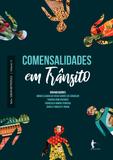Uma dramaturgia da violência
Editorial: EDUFBA
Licencia: Creative Commons (by-nc-sa)
Autor(es): Carvalho, Maria Claudia da Veiga Soares de et al
This book intends to examine the films of João Canijo and their ties to representations of national identity. For that purpose, we did a review of literature on Portuguese cultural identity in its diverse dimensions (historical, literary and anthropological), focusing on the importance of Salazar’s ideology and the current identity debates. In the second part of this thesis, we try to analyse eight feature films made by the director, proposing the idea of a dramaturgy of violence, through intertextuality with Greek tragedy and film melodrama, which gives a perspective of a representation of contemporary Portugal, based on a patriarchal society and its violence. We argue the importance of concepts such as non-inscription, by José Gil, or the repressed, by Eduardo Lourenço, to comprehend the films. At last, our analysis debates the issue of realism in cinema, through the prism of contemporary changes suggested by the work of the filmmaker, which fuses fictional and documentary elements. Finally, we suggest a type of dramaturgy of violence in João Canijo’s films that try to question the existing images of Portuguese identity and its cultural representations.
Compartir:
Una vez que el usuario haya visto al menos un documento, este fragmento será visible.


